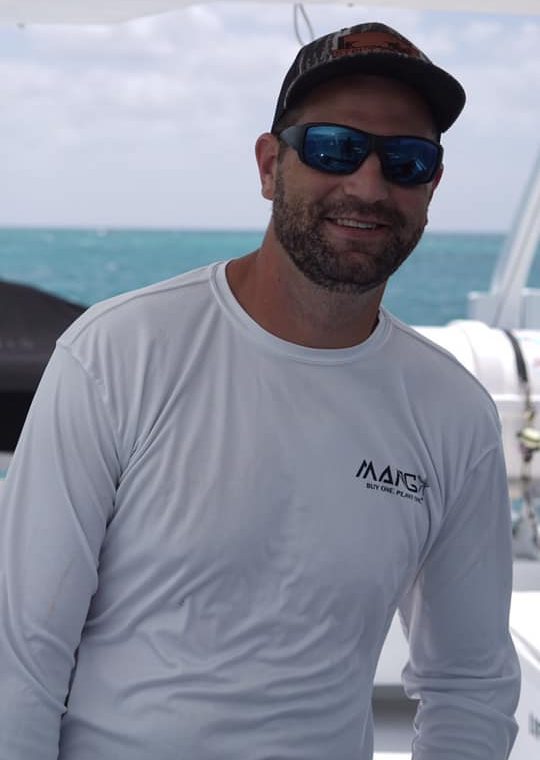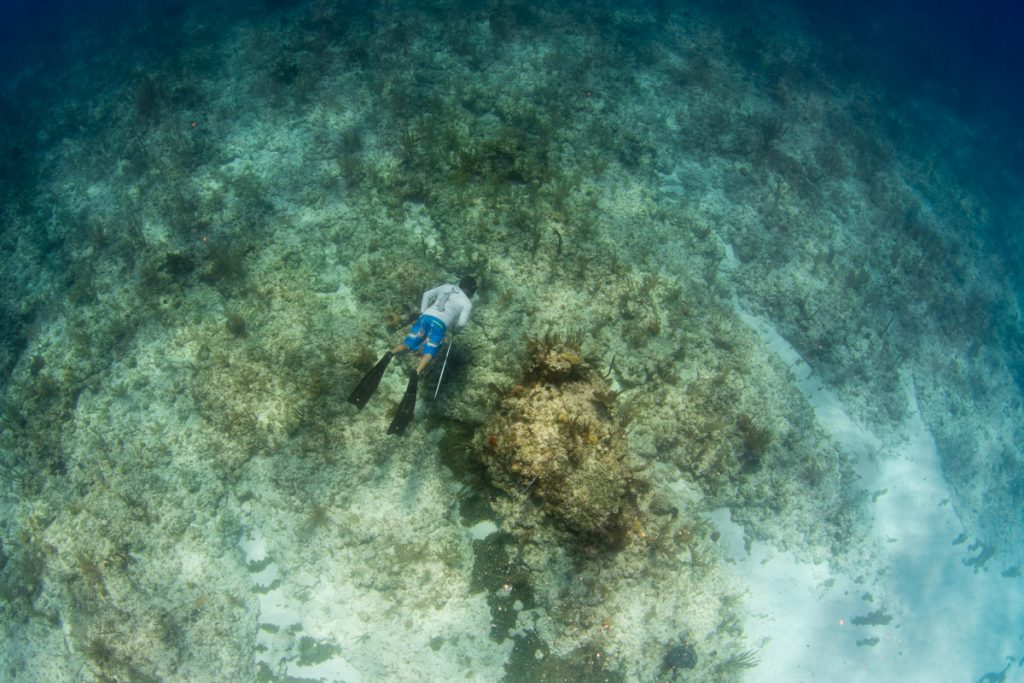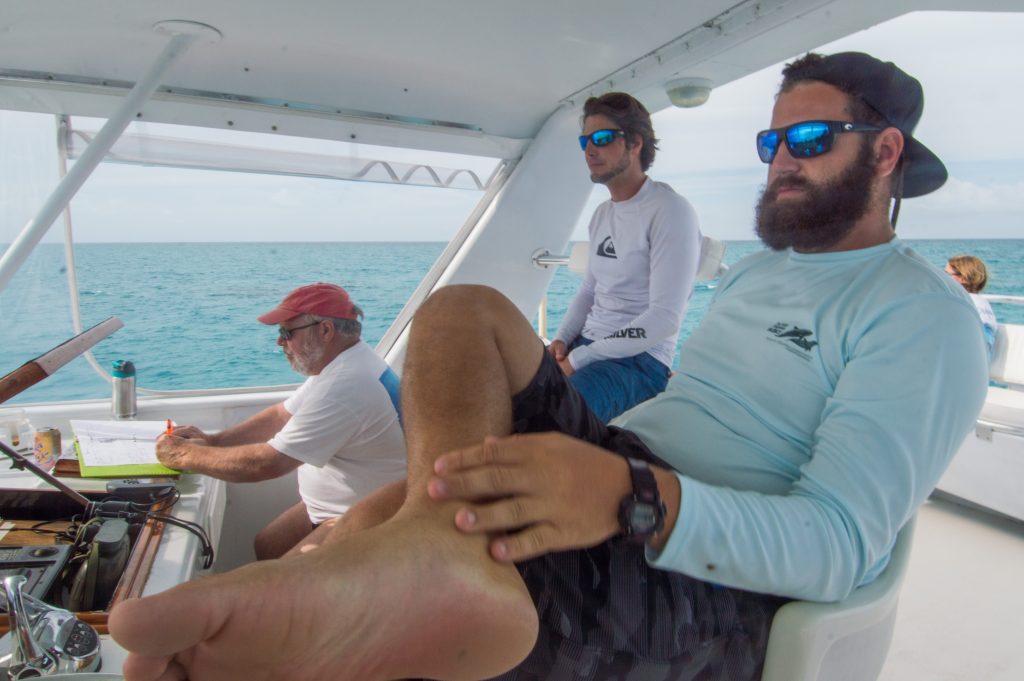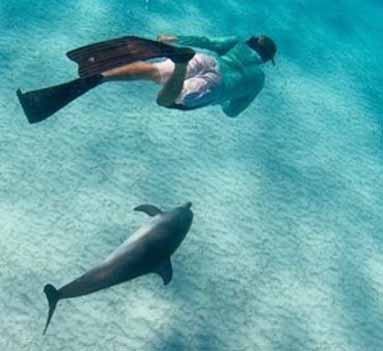
Captain Brad Ruda
Brad Ruda grew up in the Lake Worth, Florida and always loved the water and being outside. He spent his days boating fishing, camping and canoeing. After graduating high school, Brad had been working as a dockhand at the same marina where we dock our research vessel Stenella. He regularly helped out our then captain in the hopes of one day getting a job. In 2015, that dream came true when he was offered a position as first mate. Now, he’s the captain.
WDP: What’s it like being the captain of a research vessel?
BR: Being the captain of such an iconic boat has been nothing short of an incredible experience. There isn’t a marina I’ve visited, where someone hasn’t said I know that boat from way way back when and it always makes me feel proud and humble to be trusted with a boat that has so much history! I’ve been captain of fishing boats and pleasure yachts and they are both neat jobs but the unique prestige that comes from running the Stenella is just vastly different.
Also, the job it self is so much different than any other I’ve had being that it’s a liveaboard passenger boat. In every other job I’ve had, the day ends at the marina. With this job, we are so far from land and home and help that it keeps you on your toes for anything at a moments notice. It’s been an awesome challenge and every trip can be so different from the people onboard to mechanical issues to troubleshoot. You never settle in to a boring routine!
WDP: What’s your favorite part of the job?
BR: I would say my favorite part of the job would be how remote we are in the field. The waters are beautiful, the reefs are gorgeous and the noise of our busy lives back at home can’t reach me. I love stepping outside after everyone’s gone to sleep and sitting back and looking at the stars and hearing absolutely nothing! Also I love any chance we get to fish, but I’m not sure that counts!

Captain Brad spearfishing to find us some dinner while out at sea
WDP: What might surprise people about your job?
BR: I think what would surprise people most about the job is that it’s not all glamorous swimming with dolphins every day. People often tell me in an envious way that I don’t really work! That’s not true at all. The amount of effort it takes to handle the stress of knowing everyone’s lives are my responsibility and that it can turn from super fun to life and death in a few quick moments is something that’s unmeasurable. You can’t really ever relax while on a trip because when you miss something it can escalate quickly. Everyone is counting on me not only drive the boat and find dolphins for research but also to make it safe! I think the real skill of this job is being able to handle all of that and not have the guests notice that I’m ever stressed or worried.
WDP: What’s the craziest thing you’ve experienced out at sea?
BR: So, far, the craziest thing I’ve experienced is how dynamic the weather can be. I recall a time in my first season when we anchored on the ridge and it was dead flat, and by 1 am the seas were kicked up to 6 feet! So me and the first mate decided to pull the anchor and run to a safer spot for coverage. As we drove, the waves built and built and before we knew it it was 8-10 foot swells and we smashed into the waves for hours. We didn’t reach a safe anchorage spot until 4 am.
WDP: Have your views on science or conservation changed since being a part of this project?
BR: I’ve always had a great respect for science and this work in particular. What I’ve realized now is how much worse the ocean has gotten in my short time on the water and recognizing the importance of education and outreach, so that everyone else realizes the threats to our seas and we can move forward to help protect it.
WDP: For someone who is interested in science but maybe interested in being a captain and not a scientist, what skills do you think make you successful at this job and are important to have?
BR: I think what makes me successful —and something important for any captain or person on the water — is my ability to processes situations and think on my feet, to make the best decisions for the boat in a quick manner, given the information at hand. When you’re at sea, you don’t always have the luxury of time or the ability to bring in an expert. Also, my mechanical skills are enough to handle most systems on this boat. But, one skill you might not think you need on this boat is people skills. The ability to connect and engage with so many different types of people and help them learn and have fun is really valuable.


